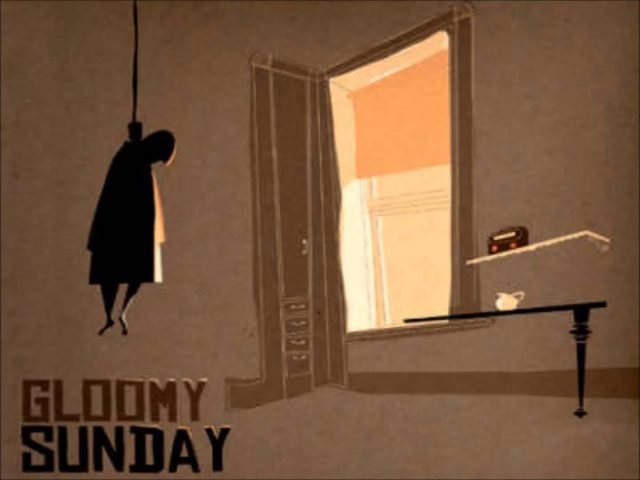In Budapest, a shopkeeper killed himself and left a note with the lyrics of a song. Several bodies were found floating in the River Danube, their hands clutching the sheet music of the same song. In Rome, an errand boy heard a beggar by the road humming this tune, after which the lad gave him all his money, jumped off a nearby bridge and drowned to his death.
Could these seemingly unrelated lives have been connected solely by the power of a song that plunged them to their deaths or is there more to the tale?
History Behind ‘Gloomy Sunday’ – The Hungarian Suicide Song
In 1933, the Hungarian pianist and composer Rezső Seress composed a morose melody about the despair caused by war and named it ‘Vége a világnak’ (The World Is Ending). The minor-scale melody seems to foreshadow the hardships that would follow him in the years to come.
During the Second World War, he was taken as a prisoner in a Nazi labour camp. He survived the camp, but his mother was not as fortunate. He then worked in a theatre and a circus as a trapeze artist but had to give up his career after an injury. After a long streak of bad luck, he finally concentrated on becoming a full-time songwriter.
Seress’ infamous melody only caught public attention after a Hungarian poet, László Jávor, wrote his own lyrics to the song and called it ‘Szomorú vasárnap’ (Sad Sunday). It was about a heartbroken lover who wished to take his own life and meet his love on the other side and was inspired by Jávor’s break-up with his fiancee.
Two years later, pop singer Pál Kalmár released the first recorded version of the song. It was soon followed by an English recording by Hal Kemp but it really caught on after Billie Holiday released her world-renowned version of it in 1941.
Read More: Why Getting Over Someone You Never Dated Is The Hardest
The Curse and The Big Ban
After the release of the recorded version, an unexplained, eerie phenomenon occurred – suicides were being reported across the country, all allegedly connected to the song.
At least 19 suicides were reported in Hungary and America but there is no concrete evidence that the song played a definite role in these deaths. In fact, it may be just an urban legend. Either way, the press grabbed this intriguing piece of news and made the most out of it.
In the early 40s, BBC banned Billie Holiday’s version from being broadcast on the radio as it was considered to be too upsetting for the audience but allowed instrumental versions of the same song. The ban was lifted in 2002.
What Made The Song So Suicidal?
Is it the effect of the emotional burden of two artists that produced such a detrimental outcome on vulnerable listeners?
It may be more than that.
The 1930s was the time of the Great Depression – the longest and most widespread economic depression the 20th century had witnessed. It brought along with it famine, poverty and a skyrocket in suicide rates in the US and Hungary. Add to this the rise of Nazi Germany’s influence in Europe and we can deduce that the song was set in a time when public morale was at an all-time low.
 What Happened To The Composer?
What Happened To The Composer?
Rezső Seress gave in to his depression and killed himself in 1968 by jumping from the window of an apartment building in Budapest. There are several ambiguous stories revolving around an ex who had apparently inspired the song and whose suicide had led to his own but the truth behind these tales is uncertain.
Seress had revealed that the success of his song “Gloomy Sunday” had increased his despair as he knew that he would never be able to write another song that would do as well.
Image Credits: Google Images
Sources: Historic Mysteries, Scaryforkids.com, Mental Floss
Recommendations For You:
Age-Old Indian School Punishment Now Dubbed “Super Brain Yoga”
Why I Hate It When People Make Lazy, Stereotypical Malayali Jokes



































budapest, hungary. low-cost trips and also resorts in budapest, hungary. low-cost trips from ireland to budapest hungary. economical trips to budapest. discount rate air travels to budapest. price cut bookings at budapest resorts. estate representatives in budapest. anglers stronghold budapest. resort berlin in budapest.